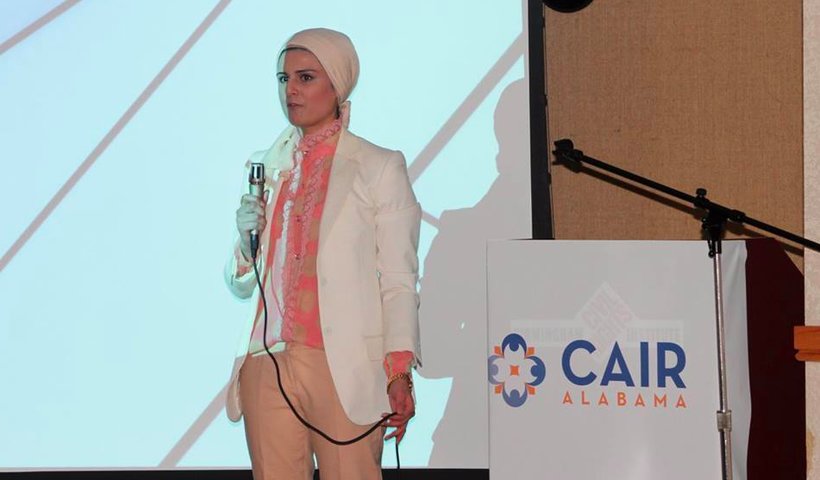
A Massachusetts court ruling has grabbed the attention of religious schools in Alabama, where faculty, staff and parents are concerned that it could set a precedent, although the ruling does not impact them directly.
Buzzfeed News explains:
A state court in Massachusetts has ruled that a Catholic preparatory school violated the state’s anti-discrimination law when it rescinded a job offer to a man because he was married to another man.
Matthew Barrett had accepted a job as Food Service Director at the Fontbonne Academy, a Catholic girls school. On his employment forms, he listed his husband as his emergency contact — a move that led the school to rescind the job offer.
Mr. Barrett’s attorneys, who were supplied by the non-profit Gay & Lesbian Advocates & Defenders (GLAD), hailed the judge’s ruling as “the first of its kind in the country” because it rejected the school’s argument that the U.S. Constitution protects its right to freely exercise its religion with regard to who it employs.
The only time those protections apply, the judge wrote, is when the school or other religious employer “limits membership, enrollment, admission, or participation to members of that religion.” The Fontbonne Academy did not do that, the court found.
“Since the advent of marriage equality, we have seen efforts by religiously affiliated organizations to expand the grounds for exemptions from the obligation of nondiscrimination,” Mr. Barett’s attorney wrote in the wake of the decision. “The court’s ruling … affirms that a religious employer has no greater constitutional right to discriminate on the basis of sexual orientation than it does to discriminate on the basis of a person’s race or sex.”
David French, a constitutional lawyer and writer for National Review, said the judge’s ruling effectively “crushed” the First Amendment rights of the school.
“The Court’s reasoning was absurd, rejecting the schools’ expressive association argument in part because the school was ‘free’ (for now, anyway) to explain that hiring Barrett was merely ‘involuntary compliance with civil law,’” he said. “By that standard, expressive association becomes meaningless. After all, if a court can jam Christian employers with employees who don’t share their values — and then contend that the employers’ rights are protected if they’re still free to complain about it — then the floodgates are open. Moreover, it’s disturbing to see a court substitute its own judgment for a Christian organization’s determination of what constitutes a ‘serious’ burden on its religious expression. Even worse, the court held that even if the school could establish a serious burden on its expression, the state had a ‘compelling governmental interest’ in eliminating discrimination, effectively crushing the school’s First Amendment rights.”
Unlike Massachusetts, Alabama does not have an anti-discrimination law that carves out LGBT as a “protected class.”
Such a bill was introduced in the Alabama legislature last year by Democratic State Rep. Chris England (D-Tuscaloosa), but a vote on the measure was cancelled before it came up in the House Judiciary Committee.
“I believe that in order to protect those classifications they need to be enumerated,” Rep. England said at the time. “There is some history there that suggests that if it’s not enumerated, they’re not protected.”
“This is a big issue,” State Rep. David Faulkner (R-Mountain Brook) said in response, “and it deals with some big issues that raise a lot of constitutional issues that we need to look at, I believe, further”.
Among those constitutional issues, according to Alabama attorney Eric Johnston, is how such a law would impact religious individuals who exercise their faith in their daily lives, including at work.
“If you are one of these bakers, florists, if you had a wedding chapel kind of thing, you would be required to perform same-sex weddings and activities which may be against your religious beliefs,” he told al.com.
And according to a state court in Massachusetts, institutions could be barred from exercising their religious beliefs when making hiring decision.
According to Private School Review, there are just under 400 religiously affiliated schools in Alabama, making up over three-quarters of the state’s total private schools.
St. Paul’s Episcopal School in Mobile, St. James School in Montgomery, Holy Spirit Catholic Regional School in Tuscaloosa, Shades Mountain Christian School in Hoover and Briarwood Christian School in Birmingham are just a handful of the numerous religiously affiliated institutions that are ranked among the best private schools in the state.
The Massachusetts ruling does not have any direct impact on them, and unless the Republican-controlled Alabama legislature made LGBT a special “protected class” in the state, the precedent the ruling set may not either. But as Fontbonne Academy is finding out, it only takes one judge in one case to set in motion a legal fight that could take years to complete. That is something that religious schools across Alabama are undoubtedly taking into consideration as they observe the latest news out of Massachusetts.












